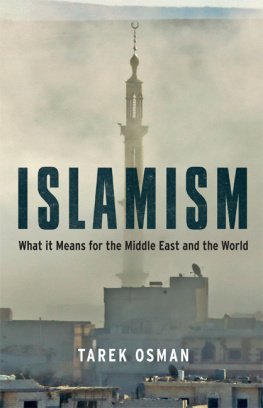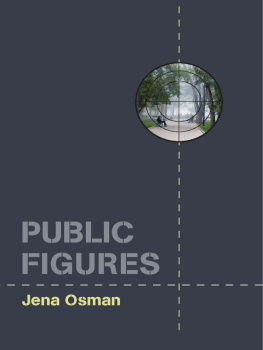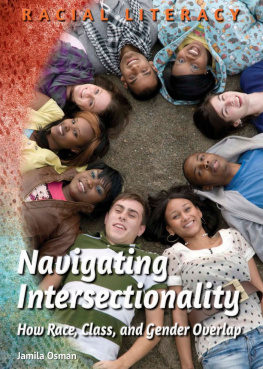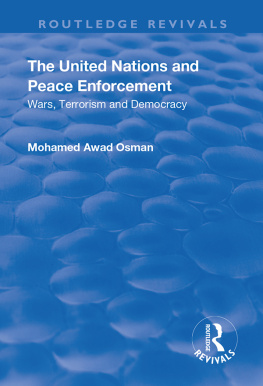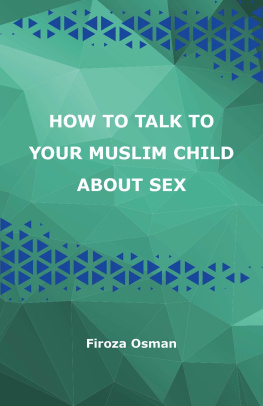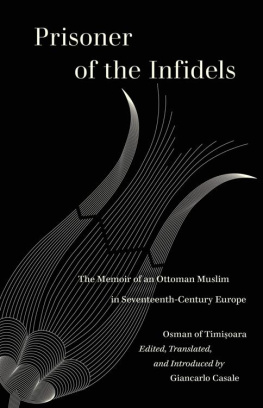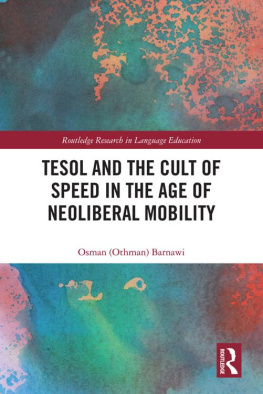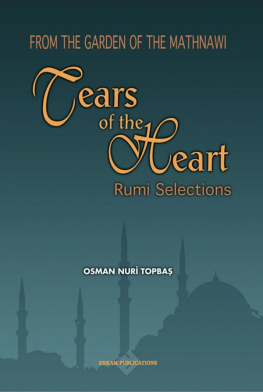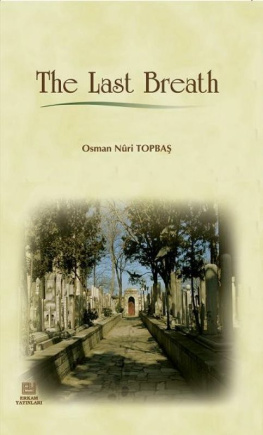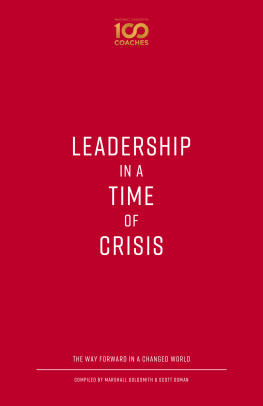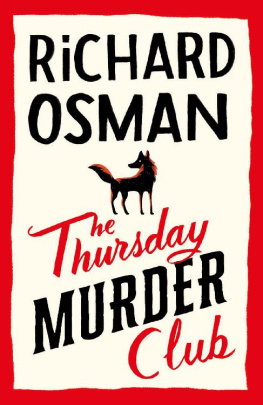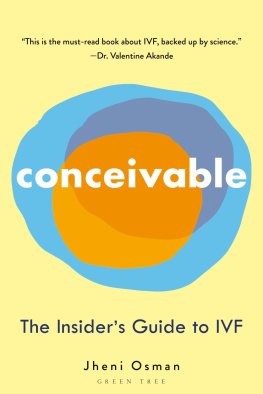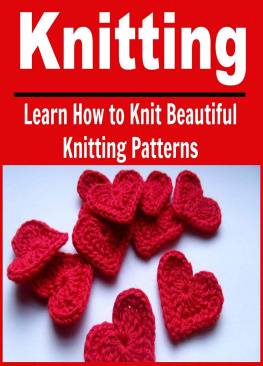Osman - The Woman in the Text: A Collection of Essays
Here you can read online Osman - The Woman in the Text: A Collection of Essays full text of the book (entire story) in english for free. Download pdf and epub, get meaning, cover and reviews about this ebook. year: 2019, publisher: SALAM Publications, genre: Science. Description of the work, (preface) as well as reviews are available. Best literature library LitArk.com created for fans of good reading and offers a wide selection of genres:
Romance novel
Science fiction
Adventure
Detective
Science
History
Home and family
Prose
Art
Politics
Computer
Non-fiction
Religion
Business
Children
Humor
Choose a favorite category and find really read worthwhile books. Enjoy immersion in the world of imagination, feel the emotions of the characters or learn something new for yourself, make an fascinating discovery.

The Woman in the Text: A Collection of Essays: summary, description and annotation
We offer to read an annotation, description, summary or preface (depends on what the author of the book "The Woman in the Text: A Collection of Essays" wrote himself). If you haven't found the necessary information about the book — write in the comments, we will try to find it.
Osman: author's other books
Who wrote The Woman in the Text: A Collection of Essays? Find out the surname, the name of the author of the book and a list of all author's works by series.
The Woman in the Text: A Collection of Essays — read online for free the complete book (whole text) full work
Below is the text of the book, divided by pages. System saving the place of the last page read, allows you to conveniently read the book "The Woman in the Text: A Collection of Essays" online for free, without having to search again every time where you left off. Put a bookmark, and you can go to the page where you finished reading at any time.
Font size:
Interval:
Bookmark:
The Woman in the Text
A collection of essays addressing controversial topics about women in Islam: from wife-beating and divorce, to inheritance and Aishas union to the Prophet
In the name of God, the Most Wise, the Most Just
To my dear family
Especially all of my beloved children
If it wasnt for them, this would have been completed much, much earlier
Contents Page
Introduction
This booklet is a collection of various essays that deal with several pressing issues surrounding the various legal and judicial rulings concerning women in Islam. These issues have been popularised fallaciously and inaccurately, for the most part by both the Western media and Orientalist detractors.
Perhaps one of the most pivotal and important topics addressed is the age of Aisha at which she completed her divine union with the Prophet Muhammad (PBUH). I attempt to display and dissect the philosophical underpinnings of the morality framework utilised by critiques of this union, notwithstanding the historical and sometimes anachronistic reasoning used by examining the age of sexual consent in different societies across different time periods. Most importantly, I address the inbuilt mechanism of the Shariah due to the principles of Islamic jurisprudence ( Usl al-Fiqh) in protecting and safeguarding any future spouse from harm, irrespective of the age of consent.
In a separate paper, the infamous thirty-fourth verse from the fourth chapter the Quran (4:34) is addressed. Several important themes that run throughout the verse are discussed, including the supposed endorsement of wife-beating and the viewpoints held therein by both traditional exegetes and jurists as well as modern interpretations. The primary focus of the latter interpretations is Amina Wadud and her unique hermeneutical position of just say no. I also explore the concept of a supposed patriarchal form of obedience to a male disciplinary figure. Likewise, the concept and interpretation of qiwmah is discussed. I explore the different translations of the term that encompass the support placed on males on their spouses, to female witness testimony, and the complexities and differences between ishhad (being summoned voluntarily to witness a monetary transaction) and legal testimony in a court of law. An offshoot of this discussion included an exploration of female hadith narration ( riwyah ) throughout the ages.
The final two short essays in this book discuss the questions of whether Islam subjugates married women in an inescapable relationship, and whether the intricate rulings of Islamic inheritance unjustly favour men over women.
I would like to thank all those who assisted and advised during the writing of these essays. Their contributions have been dear and invaluable.
Abu Safiyyah Mohammed Osman
29/04/19
London, UK.
The question of the union of Prophet Muhammad (peace be upon him) to isha at a young age requires a preliminary philosophical analysis of morality. It is from this particular lens that popular detractors uphold a narrative in which the Prophet Muhammad (PBUH) was uniquely depraved in his insistence on marrying and consummating isha (his third wife) at the age of 9. This essay is an attempt to expose the fallacious reasoning employed by such popular detractors and to demonstrate the philosophical double standards of the proponents of their views. In the first part of this essay, we will investigate the philosophical frameworks utilised and evaluate their use as ultimate barometers of truth. Secondly, we will evaluate how orientalist detractors judge the sexual age of consent in any given society and analyse whether or not such commentators are fallaciously anachronistic in their historical reasoning. Moreover, a comparative analysis will be made between Islam and other religions with respect to sexual age for consent. The concept of adolescence in determining adulthood will also be briefly examined, together with the role of principles of Islamic jurisprudence ( Usl al-Fiqh) in the issue of harm and its relevance to the validity of marriage and the age of consent. Lastly, we will consider the recorded statements of isha herself in relation to this union. To be clear, what is not advocated in this essay is a legal reconsideration of the age of consent in the UK or any other country in the world. Rather, this essay aims to question the fallacious reasoning used by detractors insistent on questioning the morality of this divinely sanctioned union.
One of earliest known sources containing criticism against the marriage of Prophet Muhammad (PBUH) to isha is Mohammad and the Rise of Islam , written by the British Orientalist David Margoliouth (d. 1940) and published in 1905. Margoliouth labels the marriage an ill-assorted union ... for as such we must characterise the marriage of a man of fifty-three to a child of nine. It is significant to note that the union of the Prophet (PBUH) to isha was one that was categorically accepted in 7 th Century Arabia - a claim that could be extended to many other parts of the world, as we will shortly observe. Virtually no criticism of this union can be found even from the most ardent detractors of the time, such as the Prophets (PBUH) paternal uncle and fervent disparager of Islam, Abu Lahab , who was also the namesake of a scathing chapter in the Qurn .
Furthermore, Ibn Sad (d. 230 AH) narrates in his al-Tabaqt that isha was previously engaged to one of the nobles of the Quraysh prior to her engagement with Prophet Muhammad (PBUH). by Thomas Carlyle (d. 1881). These examples demonstrate that the argument against this specific marriage is relatively new, one not previously coined by even the most ardent detractors to the Prophet (PBUH), from his time until the beginning of the 20 th Century.
Criticism of the marriage between the Prophet (PBUH) and isha has since matured into the denunciation that the Prophet (PBUH) was a paedophile. This accusation is used particularly by far-right groups and the most fervent critics of Islam. Paedophilia is defined as sexual perversion in which children (usually before reaching the age of puberty) are a preferred sexual object. If this allegation of paedophilia was accurate, then it must be asked why the Prophet (PBUH) did not continue to marry more prepubescent girls. All historical sources detailing biographical accounts of the life of the Prophet (PBUH) show quite the opposite: without exception, all marriages of the Prophet (PBUH) after that to isha were to widows, many of whom were middle-aged. This marks an even more drawn-out, misleading attempt to criticise the moral standing of the Prophet (PBUH). In doing so, this accusation implicitly associates the label of paedophile with the multitude of philosophical frameworks, societies and legislations that permitted similar unions, as we will shortly discuss.
Morality can be determined in one of two main ways: either through a philosophy that does not claim objectivity, or through a philosophy that does. An example of the former is democracy. Many proponents of democracy acknowledge its limitations. Winston Churchill famously said, Democracy is the worst kind of government except for all of the others we try from time to time. highlights that this view, held by Nietzsche and other proponents of postmodernism such as Michel Foucault and Jacques Derrida, expresses that no actual criterion exists of morality, only a socially constructed one.
Next pageFont size:
Interval:
Bookmark:
Similar books «The Woman in the Text: A Collection of Essays»
Look at similar books to The Woman in the Text: A Collection of Essays. We have selected literature similar in name and meaning in the hope of providing readers with more options to find new, interesting, not yet read works.
Discussion, reviews of the book The Woman in the Text: A Collection of Essays and just readers' own opinions. Leave your comments, write what you think about the work, its meaning or the main characters. Specify what exactly you liked and what you didn't like, and why you think so.

